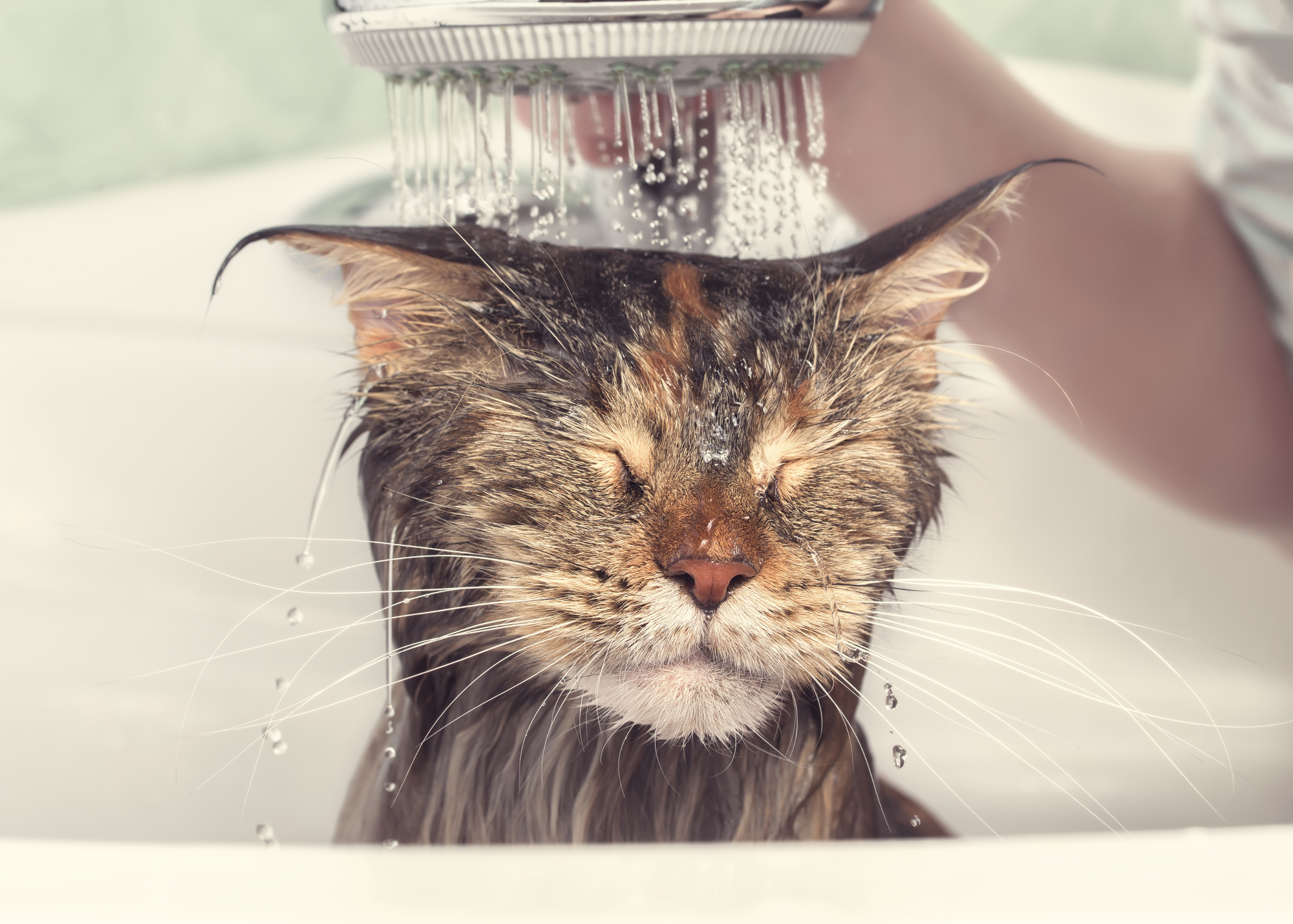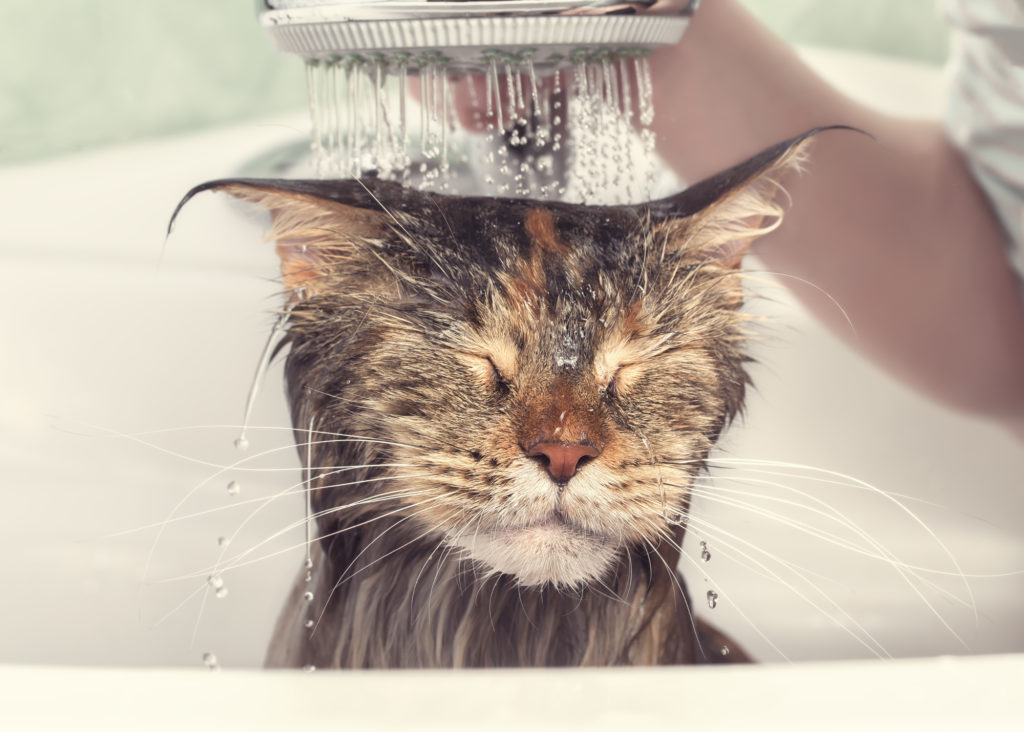Should I Wash My Cat?

Should I Wash My Cat?
Whether you’re a new cat owner or have been the proud owner to a fur baby for some time now, there’s one thing that all cat owners should be aware of. Grooming is extremely important, particularly with long haired felines, when it comes to your cat’s health and wellbeing, and we all want our cats to be healthy and happy. In case you find yourself wondering “Should I wash my cat?” we have the answer, as well as some advice on grooming your feline friend to keep them looking purr-fect.
Why is grooming important for cats?
Grooming your cat by brushing them can help you to build a strong bond and your cat will trust you more after each grooming session. Many cats really enjoy being brushed and it can help to reduce stress. If you’re wondering “Do cats need baths?” the answer is, not really. The right cat brush helps to soothe and massage your feline buddy whilst removing dead hair and preventing matts, particularly important for long-haired kitties. Don’t underestimate the importance of claw trimming too, as this helps domestic cats to feel more comfortable. Regular grooming sessions, either yourself or with a registered cat groomer, can help to check your kitty for abnormalities like lumps, bumps or skin conditions, which are best caught early for the necessary treatment.
Should you wash your cat?
If you’re wondering about bathing a cat and whether it is really necessary, you may be glad to hear that cats actually have everything they need to keep themselves clean. Most cats, especially short-haired breeds, are excellent self-groomers, but you may need to bathe a cat in extreme circumstances. For example, if your cat has been unwell with diarrhoea or has been stuck up a chimney and is covered in soot, you may need to wash their coat. Bathing a cat can also help to reduce shedding, which is great news if you’re the owner of a long-haired feline. Showering rinses away dead hair but you can always achieve a similar result with brushing alone. Finally, if your cat is a purebred and you’re taking them to a show, it goes without saying that a trip to the groomers for a bath is in order.
How to wash your cat – the dos and don’ts
The average indoor cat may never need a bath, but if you do decide to take the plunge, we do not recommend bathing your kitty more than a couple of times a year. Only you know your cat’s personality and levels of aggression, which can be a key deciding factor when it comes to bathing a cat. Cats that have been bathed regularly since they were kittens are the most likely to tolerate being bathed as an adult cat. A scared cat can hiss, spit and become hostile, so you need to consider whether it is worth the stress (for you and your kitty) to bathe your cat, unless they are extremely dirty.
- Do trim your cat’s claws the day before bathing them to decrease the damage they might do when stressed
- Do brush your kitty before bathing them to remove tangles and knots – this can be harder to do when their coat is wet
- Don’t use human shampoo, which can be toxic to cats, or dog shampoo. You can get cat shampoo from the pet shop or your vet
- Do try to bathe your cat after they have eaten or when they are tired out from a play session
- Do get your cat used to being in the bathroom before bath time – you can even add some toys to the bath for play time and gradually add water to help them adjust
- Do ensure you have everything you need before you start. Close the bathroom door to prevent your cat from escaping, get the shampoo ready, a couple of large cups for rinsing and a few towels for drying your cat
- Fill the bath with a few inches of warm water before bringing your cat into the bathroom and use a rubber mat on the base of the bath to prevent slipping
- Don’t use the overhead shower as the amount of water can overwhelm some cats
- Wear a long-sleeved shirt or jumper to protect your arms from scratches
Bathe your cat at their own pace
It is important to stay calm when bathing your cat, as they will pick up on your stress. Take things slowly and soak your kitty gently from the neck down, washing their neck, body, belly, legs and tail. Diluting the shampoo can make rinsing easier, and you want to gently massage them to help them relax. Often using a pheromone spray on yourself, around the bathroom and on any towels can help reduce your cats anxiety too.
If your cat wants to stop at any stage, they will let you know and you should respect this. However, you should always rinse shampoo thoroughly until the water runs clear. You can wash kitty’s face gently with a wet, warm washcloth and then dry them gently with a towel.
Hire the experts
If this all seems like a lot of stress or work then the good news is that there are professionals who can help you. If you find yourself wondering, “Where can I get my cat groomed?” then the answer is that there are probably many professional groomers in your area. Just a quick search online or contact our teams and we will provide your with contact numbers for cat groomers in the area. Professional cat groomers can help your cat to stay calm and ensure they enjoy a relaxing bath without any of the stress.
When it comes to bathing a cat, remember that many cats go through their whole lives without ever being bathed, but there may be times when you need to give your cat a bath, for whatever reason.
Blog and images supplied by Zoetis.
Written by Edwina Gildea MVB MRCVS.


